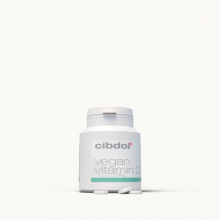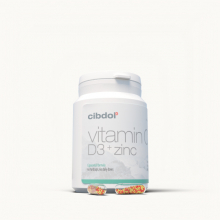Vitamin D3 The All-in-One Guide
Published:
Often neglected in our diets, Vitamin D3 is a fat-soluble vitamin that plays an essential role in promoting overall health and well-being. Vitamin D3 is a critical component for health and wellness, with implications in bone strength preservation, immune system regulation, and potentially reduced chances of developing certain chronic illnesses such as MS or type 2 diabetes. In this comprehensive guide on vitamin D3, we will delve into various aspects of this vital compound.
Contents:
- What is Vitamin D3?
- How Much Vitamin D3 Should I Take Daily?
- When is the Best Time to Take Vitamin D3?
- What are the Different Forms of Vitamin D3?
- What is the Difference Between Vitamin D and Vitamin D3?
- To ensure adequate vitamin D intake, consider incorporating natural sources, fortified foods and dietary supplements into your diet.
- Are There Any Risks Associated With Taking Too Much or Too Little Vitamin D3?
- How Much Vitamin D3 Should a Senior Take
- Symptoms of Vitamin D Deficiency
- Too Much Vitamin D
- Frequently Asked Questions Vitamin D3
- Conclusion
We will explore the definition and sources of vitamin D3 along with its numerous benefits to human health. Furthermore, you'll learn about the recommended dosages for adults while considering factors that may affect individual requirements. The potential side effects associated with overdosing on vitamin D3 will also be discussed.
As you read through this blog post, you'll gain valuable insights into when to take your daily dose of vitamin D3 for maximum absorption and effectiveness while understanding how food choices can impact its bioavailability. Moreover, we'll compare the various forms of supplementation available in the market today and assess their advantages and disadvantages.
Last but not least, we'll distinguish between vitamins D and D3 by discussing their chemical structures, biological activities, respective health benefits associated with each form - ensuring that you make an informed decision regarding your intake levels to maintain optimal serum 25-hydroxyvitamin concentrations throughout life.
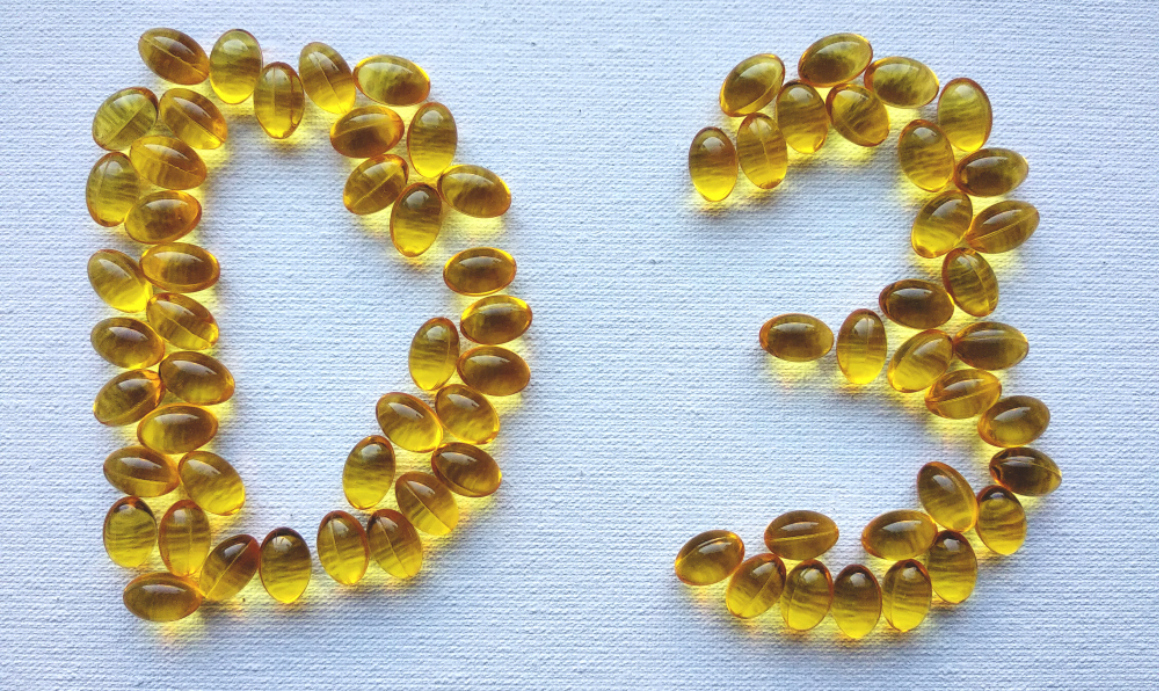
What is Vitamin D3?
Cholecalciferol, or Vitamin D3, is a fat-soluble vitamin essential for calcium absorption, immune system regulation and cell growth. It has several functions within the body, including promoting calcium absorption for healthy bones and teeth, supporting immune system function, and regulating cell growth.
Definition of Vitamin D3
Vitamin D3 is one of two primary forms of vitamin D found in nature (the other being vitamin D2). It's produced naturally by your skin when exposed to sunlight or obtained through certain foods and supplements. Vitamin D3 is necessary for sustaining appropriate calcium and phosphorus concentrations in the bloodstream, while also contributing to sound bone health.
Sources of Vitamin D3
- Sunlight: The most natural way to obtain vitamin D3 is through exposure to sunlight. Ultraviolet B (UVB) rays from the sun trigger the production of this vital nutrient within our skin cells.
- Foods: There are limited food sources containing significant amounts of vitamin D; however, some examples include fatty fish like salmon or mackerel, egg yolks, beef liver,and fortified dairy products.
- Supplements: For those who have difficulty obtaining enough vitamin D through sunlight or diet alone,vitamin d supplements can be taken orally. These typically come in various forms such as capsules or drops.
Benefits of Vitamin D3
The importance of vitamin D3 in maintaining overall health cannot be overstated. Some key benefits include:
- Bone Health: Vitamin D3 helps the body absorb calcium, which is essential for building and maintaining strong bones and teeth.
- Immune System Support: Research has shown thatvitamin d plays a role in immune system function, helping to protect against infections and autoimmune diseases.
- Mood Regulation: Studies have found links between low levels of vitamin D and depression or mood disorders,suggesting that adequate intake may contribute to mental well-being.
- Cancer Prevention: There's evidence suggesting that sufficient levels of vitamin D may help reduce the risk of certain types of cancer, including breast, colon, prostate,and colorectal cancers.
In addition to these primary benefits, research continues to explore other potential roles for vitamin d3 in supporting optimal health. Studies are looking into the potential of vitamin D3 in protecting against cardiovascular issues, diabetes and neurological ailments like Alzheimer's.
Vit D3 is a key nutrient that can be derived from particular aliments and dietary supplements. Knowing how much Vitamin D3 to take daily is important for ensuring optimal health benefits without risking any adverse effects from overdosing.
How Much Vitamin D3 Should I Take Daily?
The general dosage of vitamin D3 may differ based on age, gender, and health status. In this section, we will discuss the general guidelines for daily intake and explore some considerations that may affect your individual requirements.
Recommended Dosage for Adults
According to the National Institutes of Health (NIH), the Recommended Dietary Allowance (RDA) for adults aged 19-70 years is 600 International Units (IU) per day. For those above 70 years old, it increases to 800 IU per day. It's important to note that these recommendations are based on maintaining adequate bone health and might not necessarily cover other potential benefits of vitamin D supplementation.
Factors That Affect Dosage Requirements
- Sun exposure: Individuals who spend more time outdoors or live in sunnier climates may require less supplemental vitamin D due to increased natural production from sunlight.
- Skin tone: People with darker skin tones have a reduced ability to synthesize vitamin D from sunlight compared to those with lighter skin tones, which can lead them needing higher doses through supplements or diet.
- Dietary habits: Those following strict vegetarian or vegan diets might need additional supplementation since most dietary sources of vitamin D come from animal products like fish and dairy products.
- Pregnancy/breastfeeding: Pregnant women should consult their healthcare provider about appropriate dosages during pregnancy as well as while breastfeeding because they often require higher amounts than non-pregnant women.
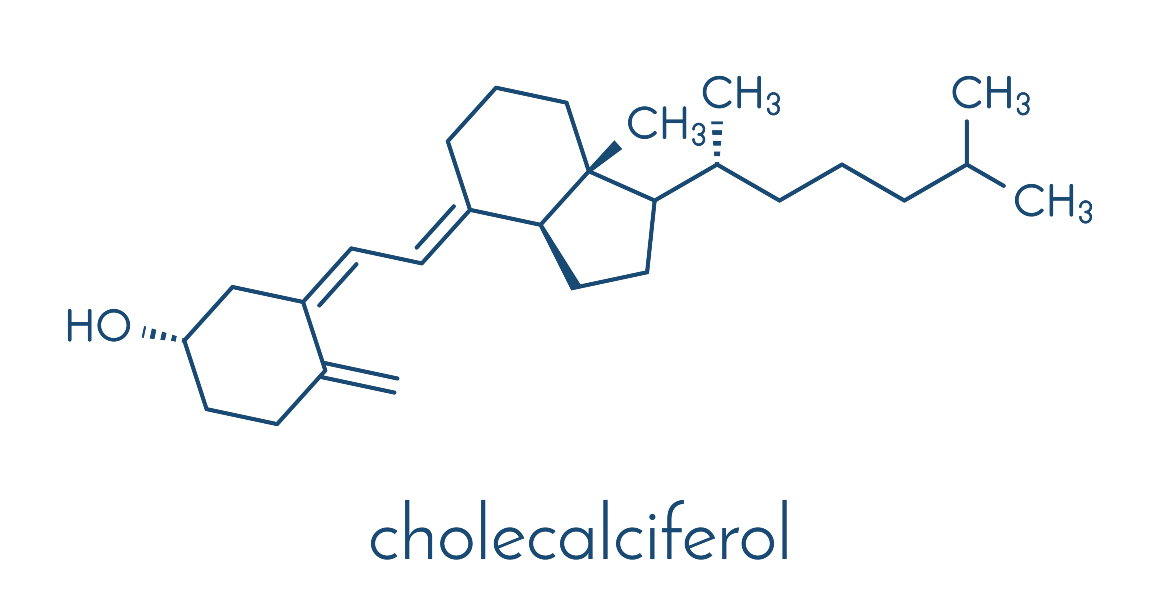
Possible Side Effects of Overdosing on Vitamin D3
While it is rare, consuming too much vitamin D3 can lead to vitamin D toxicity, which may cause symptoms such as nausea, vomiting, weakness, and even kidney damage. It's essential to consult with a healthcare professional before starting any supplementation regimen and monitor your intake levels carefully.
Overall, the amount of Vitamin D3 that an individual should take daily depends on a variety of factors such as age and lifestyle. Hence, it is essential to confer with your healthcare professional prior to beginning any supplement program. Moving forward, let's explore when is the best time to take Vitamin D3 in order to maximize its effectiveness.
When is the Best Time to Take Vitamin D3?
Finding the optimal time to take vitamin D3 can help maximize its absorption and effectiveness in your body. In this section, we will discuss various factors that influence when you should take vitamin D3, including food intake and potential interactions with other medications or supplements.
Timing Considerations for Maximum Absorption and Effectiveness
For optimal absorption, it is advised to take vitamin D3 with a meal containing some dietary fats such as avocados, nuts, seeds, olive oil or fatty fish. Research suggests that taking vitamin D supplements during or right after a meal may increase absorption by up to 50% compared to taking them on an empty stomach (source). Consuming meals containing healthy fats can boost the absorption of vitamin D3, whether from natural sources or supplements.
The Role of Food in Vitamin D3 Absorption
As mentioned earlier, consuming foods rich in healthy fats can significantly enhance the absorption of vitamin D from both natural sources (like sunlight) and supplementation. Some examples of such foods include:
- Oily fish: salmon, mackerel, sardines
- Nuts: almonds, walnuts
- Seeds: chia seeds,
- Eggs (particularly egg yolks)
Ultimately, the best time to take Vitamin D3 is based on individual needs and preferences. To ensure you make the best decision for your individual needs, familiarize yourself with various forms of Vitamin D3 supplementation.
What are the Different Forms of Vitamin D3?
Vitamin D3 is available in various forms, including natural and synthetic sources. Comprehending the distinctions between these types of supplementation can assist you in making educated choices about which one is most suitable for your requirements.
Natural vs Synthetic Forms of Vitamin D3
Natural sources of vitamin D3 primarily come from animal-based foods such as fatty fish (e.g., salmon, mackerel), cod liver oil, beef liver, egg yolks, and cheese. Our body also produces vitamin D when our skin gets exposed to sunlight (source). However, it's important to balance sun exposure with the risk of skin damage or cancer caused by ultraviolet rays.
Synthetic sources, on the other hand, refer to supplements that contain chemically synthesized vitamin D3. These products may be derived from lanolin (sheep wool) or produced through a chemical process using cholesterol (source). Synthetic supplements are available in various forms like capsules, tablets, liquid drops or gummies.
Pros and Cons of Different Forms of Supplementation:
- Capsules & Tablets: Convenient and easy-to-take form; however some people might find swallowing them difficult.
- Liquid Drops: Easily absorbed by the body due to their direct contact with mucous membranes; but they might have an unpleasant taste for some individuals.
- Gummies: Tasty and enjoyable to consume; but they may contain added sugars or artificial flavors.
For optimal results, seek out a supplement that is verified by independent testing and consult with your healthcare provider prior to beginning any supplementation. Look for products with third-party testing, which ensures the accuracy of the ingredients and potency listed on the label (source). Additionally, consult with a healthcare professional before starting any new supplementation regimen.
In conclusion, there are both natural and synthetic forms of Vitamin D3 available for supplementation. Ultimately, it is critical to comprehend the distinctions between Vitamin D and D3 in order to guarantee that you are utilizing the most suitable type for your wellbeing necessities.
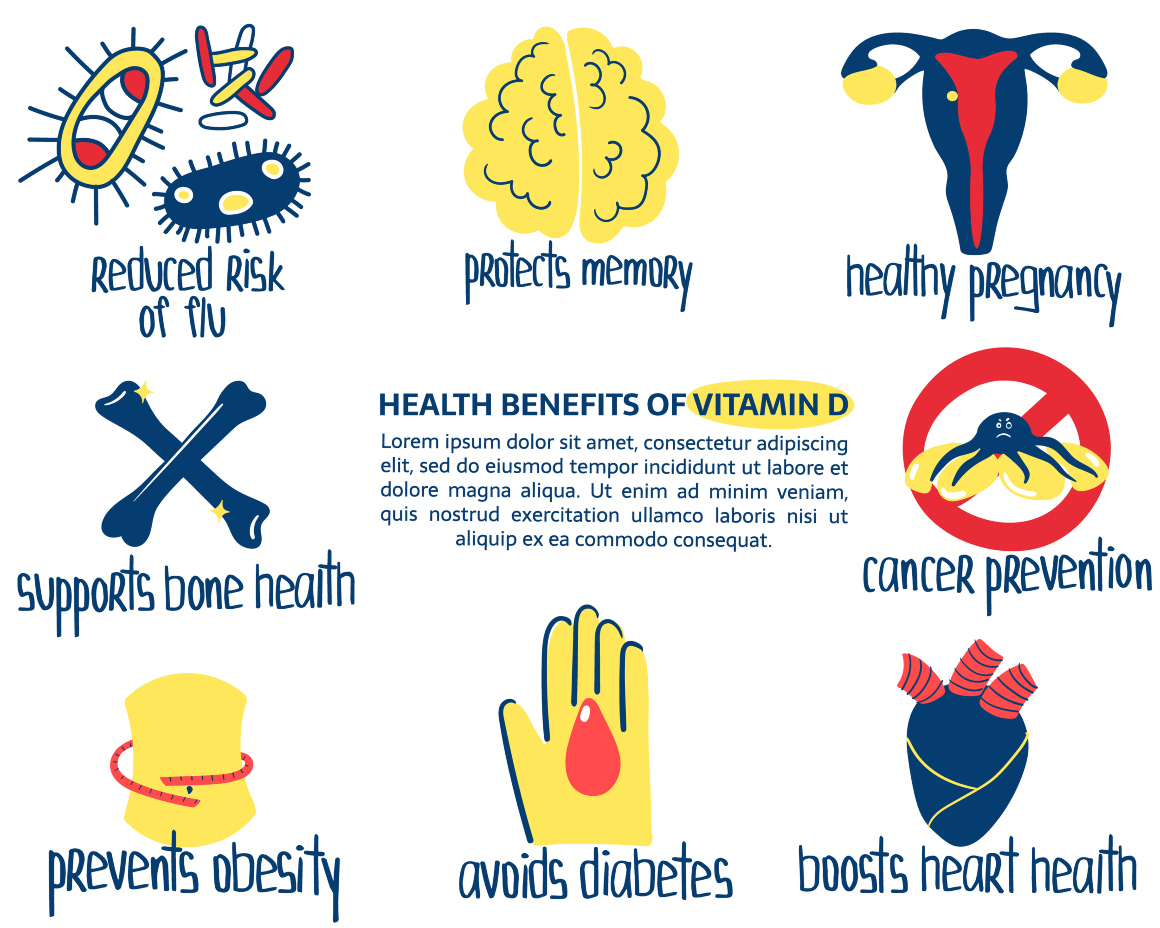
What is the Difference Between Vitamin D and Vitamin D3?
Vitamin D is a fat-soluble vitamin that plays a crucial role in various bodily functions, including bone health, immune system support, and calcium absorption. There are two primary forms of this essential nutrient: vitamin D2 (ergocalciferol) and vitamin D3 (cholecalciferol). While both types contribute to overall health, there are some key differences between them.
Chemical Structure Differences Between Vitamins D and D3
The chemical structures of vitamins D2 and D3 differ slightly due to their origins. Vitamin D2 comes from plant sources such as fungi or yeast exposed to ultraviolet light while vitamin d 3 is derived primarily from animal sources like fish liver oil or lanolin extracted from sheep's wool. These structural differences can impact how our bodies absorb and utilize each form of the nutrient.
Natural vs Synthetic Forms of Vitamin d 3
- Natural: Natural forms of vitamin d 3 come directly from food sources like fatty fish (salmon, mackerel), beef liver, egg yolks, cheese, or fortified foods such as milk products.
- Synthetic: Synthetic versions include supplements available over-the-counter in pill or liquid form containing either ergocalciferol (vitamin d 2) or cholecalciferol (vitamin d 33).
Biological Activity Differences Between Vitamins D and D3
Vitamin D3 is generally more effective than vitamin D in raising blood levels of calcifediol, the active form of vitamin D that's measured in the blood. In fact, studies have shown that vitamin d3 is up to twice as effective at raising serum levels compared to vitamin D2.
Health Benefits Associated With Each Form
Both vitamin D2 and vitamin d3 provide essential health benefits, such as:
- Promoting calcium absorption for strong bones and teeth
- Supporting immune system function to help ward off illness
- Maintaining healthy muscle function for overall physical well-being
- Regulating mood and reducing the risk of depression or anxiety disorders
- Reducing inflammation in the body, which may lower the risk of chronic diseases like heart disease, diabetes, or certain cancers.
In general, both forms can contribute positively to your overall health. However, due to its superior bioavailability and effectiveness at raising blood levels of calcifediol (the active form), many experts recommend opting for supplements containing vitamin d 3 over those with vitamin D2.
In conclusion, the differences between Vitamin D and Vitamin D3 can be seen in their chemical structure and biological activity. Subsequently, let us analyze sustenances with plentiful regular sources of Vitamin D and additionally strengthened nourishments containing additional wellsprings of this imperative supplement.
To ensure adequate vitamin D intake, consider incorporating natural sources, fortified foods and dietary supplements into your diet.
Getting enough vitamin D from your diet is essential for maintaining optimal health and preventing deficiencies. There are several ways to obtain adequate levels of this vital nutrient, including consuming foods rich in natural sources of vitamin D, fortified foods containing added sources of the vitamin, and dietary supplements as an alternative source.
Foods Rich in Natural Sources of Vitamin D
Natural food sources that contain high amounts of vitamin D include:
- Fatty fish, such as salmon, mackerel, sardines, and tuna
- Cod liver oil
- Egg yolks
- Beef liver
- Cheese (especially Swiss and cheddar)
Fortified Foods Containing Added Sources of Vitamin D
In addition to naturally occurring sources, many common foods are fortified with additional vitamins like vitamin d3 to help people meet their daily requirements. Some examples include:
- Milk (cow's milk or plant-based alternatives like almond or soy milk)Breakfast cereals, especially those marketed towards children-Juices (orange juice is a popular choice for fortification) Margarine+
Dietary Supplements as an Alternative Source for Obtaining Adequate Levels of Vitamin Dp>Vitamin d supplements can be a convenient and effective way to ensure you're getting enough of this essential nutrient, especially if your diet is lacking in natural or fortified sources. Supplements are available in various forms, including capsules, tablets, and liquid drops. Before beginning any supplementation, it is important to consult a healthcare professional for the correct dosage based on individual needs.
Ensuring your body has the correct levels of Vitamin D3 can be accomplished by consuming natural sources and fortified foods. It is essential to assess your Vitamin D3 intake to recognize any potential hazards related with taking too much or too little of the nutrient.
Are There Any Risks Associated With Taking Too Much or Too Little Vitamin D3?
Vitamin D3 is essential for maintaining good health, but it's crucial to consume the right amount to avoid potential risks associated with either too much or too little intake. In this section, we will discuss the possible health risks related to both low and high levels of vitamin D3 consumption and how you can monitor your intake for optimal results.
Potential Health Risks Associated With Low Levels Of Vitamin D3 Intake
- Bone disorders: Insufficient vitamin D levels can lead to bone-related issues such as rickets in children and osteomalacia in adults. Both conditions cause softening of bones due to inadequate mineralization, increasing the risk of fractures.
- Osteoporosis: A long-term deficiency in vitamin D may contribute to developing osteoporosis, a condition characterized by reduced bone density that increases fracture risk. Learn more about osteoporosis from the National Osteoporosis Foundation.
- Weakened immune system: Low levels of vitamin D have been linked with impaired immune function, making individuals more susceptible to infections and autoimmune diseases.
- Mental health issues: Research suggests that insufficient vitamin D may be connected with an increased risk of depression and other mental health disorders.
Potential Health Risks Associated With High Levels Of Vitamin D3 Intake
- Hypervitaminosis D: Consuming excessive amounts of vitamin D can result in hypervitaminosis D, a toxic condition characterized by high levels of calcium in the blood. Excessive consumption of the vitamin may cause nausea, vomiting, renal impairment and even cardiovascular difficulties.
- Calcification: High vitamin D intake may cause calcification of soft tissues and organs such as kidneys, heart, and blood vessels if not balanced with adequate calcium consumption.
- Drug interactions: Excessive vitamin D3 supplementation might interfere with certain medications like antacids or diuretics. Consult your healthcare provider before starting any new supplement regimen.
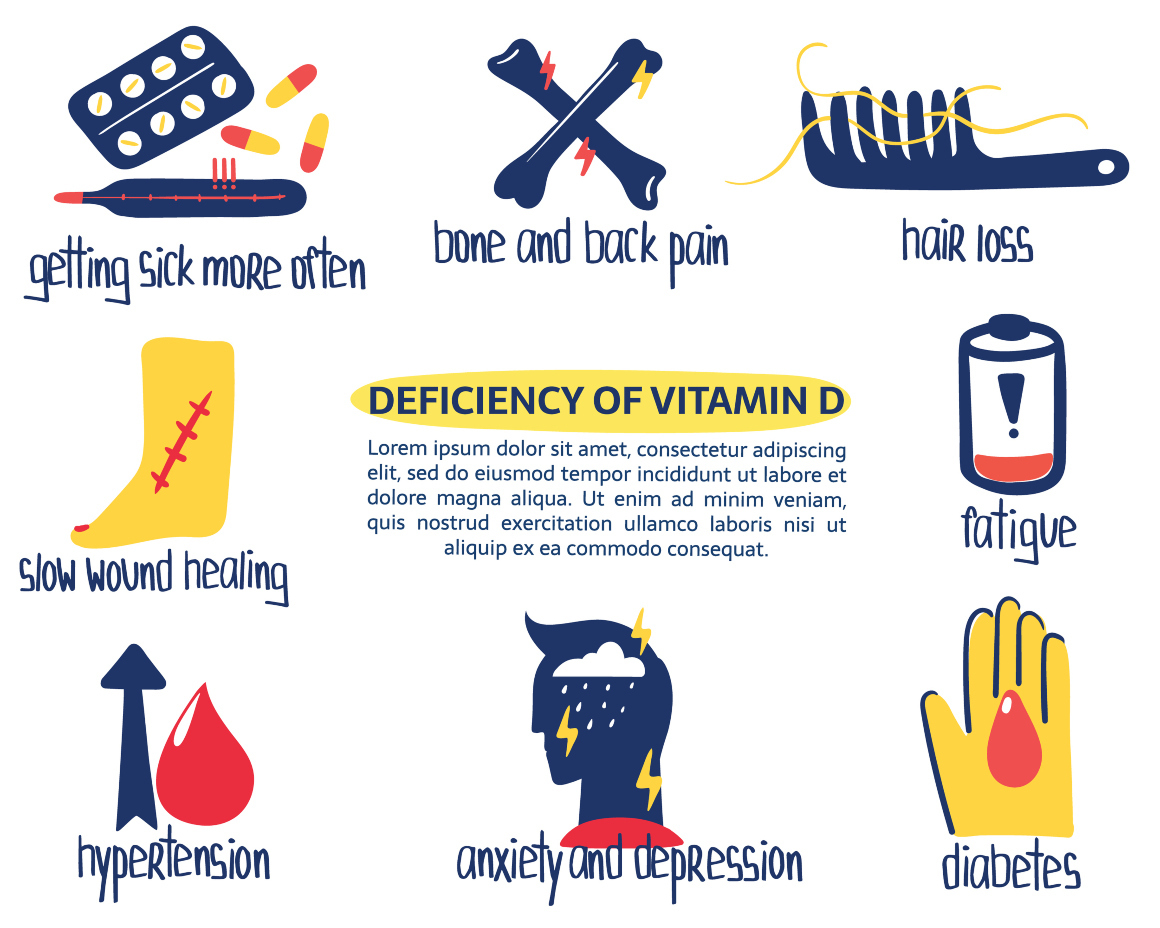
Monitoring Your Intake To Ensure Optimal Levels Of Vitamin D3 Consumption
To maintain optimal health benefits without risking potential side effects from too much or too little vitamin D3 intake, follow these guidelines:
- Consume a balanced diet that includes foods with natural sources of vitamin D, such as fatty fish, and fortified items like milk.
- If you have limited exposure to sunlight or a medical condition that affects nutrient absorption, consult your doctor for personalized supplement recommendations.
- Maintain regular check-ups with your healthcare provider to monitor your vitamin D levels through routine blood tests. Adjusting dosages based on test results will help ensure safe consumption within recommended ranges.-li
It is important to consult with a doctor before beginning any new supplement regimen, so that they are aware of what is happening inside the body's systems, organs, tissues, cells, molecules and atoms. Cross-examinations and inquisitions should be done in order to ensure accuracy when it comes to tabulations, reckonings and tallies. Checks and balances should also be performed for audits and queries. Lastly polls, questionnaires surveys or quizzes may need to be conducted as well.
How Much Vitamin D3 Should a Senior Take
As a senior, it is important to get the right amount of vitamin D3 in your diet. Vitamin D3 helps keep bones strong and healthy, as well as aiding in the absorption of calcium and phosphorus from food.
The recommended daily allowance (RDA) for adults over 70 years old is 800 IU per day. However, some experts recommend higher doses for seniors depending on their individual needs.
Sun Exposure: Sun exposure is one of the best ways to get vitamin D3 naturally.
Just 15 minutes of sun exposure two or three times a week can provide enough vitamin D3 for most people's needs. However, seniors should be careful not to stay out too long since they are more susceptible to skin damage from UV rays than younger people are.
Dietary Sources:
Eating foods that contain vitamin D3 can also help meet your daily requirements if you don't have access to much sunlight or if you prefer not to expose yourself directly to UV rays due to health concerns such as skin cancer risk factors or other medical conditions like lupus or psoriasis that make direct sun exposure dangerous.
Foods rich in vitamin D include fatty fish such as salmon and tuna; fortified milk products; egg yolks; beef liver; mushrooms exposed to ultraviolet light; and certain brands of orange juice, yogurt, margarine and cereal which are all fortified with additional amounts of this essential nutrient.
Supplements:
If you're unable to get enough natural sources through diet alone then taking a supplement may be necessary for meeting your RDA requirement each day especially during winter months when there's less sunshine available outdoors or if you live at higher latitudes where there isn't very much sunlight anyway even during summertime months when days are longer overall throughout the year compared with lower latitude regions closer towards equator lines around world globe map.
Symptoms of Vitamin D Deficiency
Symptoms of Vitamin D Deficiency can be hard to spot, but they are important to recognize and treat. People who have low levels of vitamin D may experience a variety of symptoms that can affect their overall health and wellbeing.
Fatigue: One common symptom associated with vitamin D deficiency is fatigue or feeling tired all the time.
Low levels of vitamin D in the body can cause an individual to feel more sluggish than usual and make it difficult for them to stay awake during the day.
Muscle Weakness: Another sign of inadequate amounts of vitamin D is muscle weakness or pain.
This occurs when muscles do not receive enough nutrients from the bloodstream due to lack of sufficient vitamins in the body, leading to weakened muscles that cannot perform at their best level.
Bone Pain: A third symptom linked with low levels of vitamin D is bone pain or tenderness in certain areas such as legs, arms, hips, back and ribs.
When bones don’t get enough calcium from food sources because there isn’t enough Vitamin D present in the body, they become weak and prone to fractures which leads to painful sensations throughout these areas.
Depression: Many people suffering from Vitamin D deficiency also report feelings of depression or sadness due to a lack of energy caused by this condition.
It has been found that individuals with lower levels tend towards negative thoughts more often than those who have adequate amounts in their bodies; this could be attributed partly due to hormonal imbalances caused by insufficient vitamins circulating through one's system .
Frequent Illnesses:
Lastly, having low levels puts one at risk for frequent illnesses such as colds and flu since our immune systems rely on proper nutrition including Vitamin D intake for optimal functioning capabilities against pathogens entering our bodies through airways or skin contact etcetera..
As a result , those deficient may find themselves getting sick more often than others around them who maintain healthy dietary habits including regular consumption foods rich in essential vitamins like this particular one we're discussing here today.
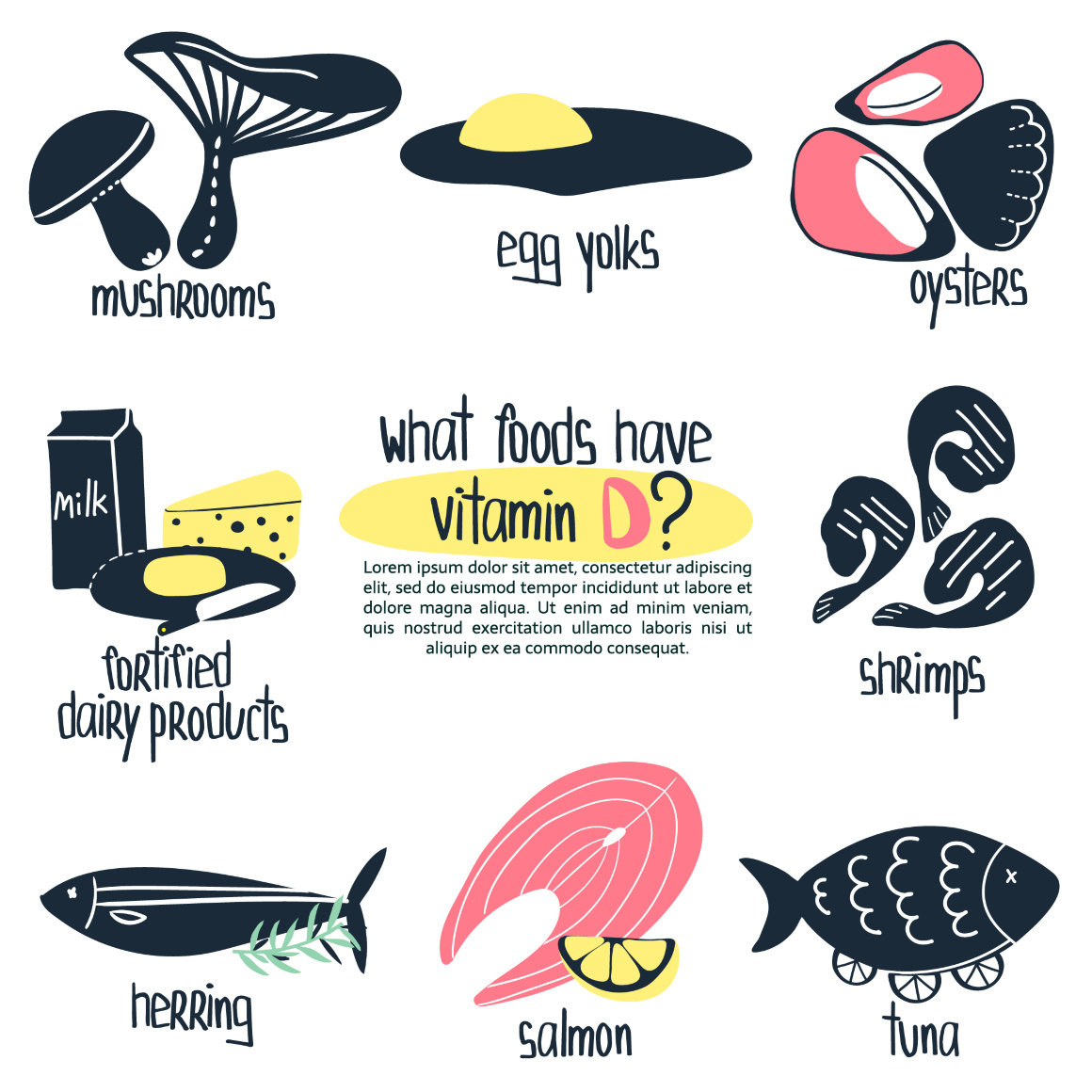
Too Much Vitamin D
Too much vitamin D can be dangerous for your health. Vitamin D is an essential nutrient, but it's important to remember that too much of a good thing can be bad. Too much vitamin D in the body can lead to hypervitaminosis D, which is characterized by excessive calcium levels in the blood and soft tissues.
Symptoms of this condition include nausea, vomiting, constipation, weakness or fatigue, confusion and bone pain or tenderness. Long-term effects may include kidney stones and damage to other organs such as the heart and lungs.
It's important to note that most people don't get enough vitamin D from their diet alone; they need some exposure to sunlight as well. However, if you're getting too much sun exposure without adequate protection (e.g., sunscreen), then you could be at risk for hypervitaminosis D due to overexposure to ultraviolet rays from the sun. Additionally, taking more than 4,000 IU per day of supplemental vitamin D3 has been linked with increased risk of developing hypervitaminosis D symptoms over time.
If you think you might have consumed too much vitamin d3 supplementally or through overexposure to sunlight then it’s best not take any additional supplements until speaking with your doctor first who will likely recommend having your blood tested for serum 25(OH)D levels so they can assess how high your current levels are before prescribing further treatment options such as reducing supplement intake or increasing dietary sources of calcium and phosphorus along with avoiding direct sunlight when possible .
It’s also worth noting that certain medical conditions like liver disease may increase sensitivity towards higher doses of Vitamin d3 making it even more important for those individuals monitor their daily intakes carefully .
Finally , while Vitamin d3 plays an integral role in maintaining healthy bones , teeth , muscles & immune system function - its always wise practice not go overboard on anything – including vitamins !
A little bit goes a long way so make sure you stay within recommended guidelines when taking any type of supplement & check with your doctor regularly just case!
Frequently Asked Questions Vitamin D3
What does vitamin D3 do to the body?
Vitamin D3 plays a crucial role in maintaining bone health by aiding calcium absorption. It also supports immune system function, reduces inflammation, and may have protective effects against certain diseases such as multiple sclerosis and cancer.
Is there a downside to taking vitamin D3?
Taking excessive amounts of vitamin D3 can lead to toxicity, causing symptoms like nausea, vomiting, constipation, weakness, and kidney damage. To avoid these risks, it is essential to follow recommended dosages and consult with a healthcare professional before starting supplementation.
Is it OK to take D3 everyday?
Yes, taking vitamin D3 daily is generally safe for most individuals when adhering to the recommended dosage guidelines. However, individual needs may vary based on factors such as age or existing medical conditions; therefore consulting with your healthcare provider is advised.
Is D5 worth taking?
The term "D5" seems incorrect or unrelated in this context. If you meant "vitamin D2," both forms (D2 & D) are beneficial for overall health but research suggests that Vitamin has greater bioavailability making it more effective at raising blood levels of active Vitamin .
Conclusion
Vitamin D3 is an essential nutrient that can help keep your bones, teeth and muscles healthy. To ensure you're taking the right amount of vitamin D3 for optimal health, it's important to consult a doctor before beginning any supplement regimen. You can get enough vitamin D from foods like fatty fish, eggs and fortified dairy products as well as supplements such as Vitamin D3 tablets or drops. It is essential to talk with a healthcare professional before beginning any supplement routine so that the correct dosage can be prescribed for your individual requirements.









